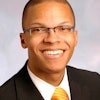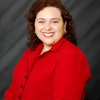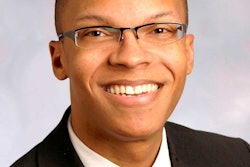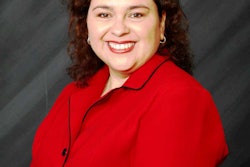In another life, perhaps, Charles O. Anderson would have been an engineer.
As a scholarship student at Cornell University, he was headed down that path until his roommate’s girlfriend, a dancer who saw how Anderson worked the floor at a party, invited him to one of her dance classes.
Suddenly, the aspiring engineer’s life became as fluid as his dancing.
“Choreography is what drew me into dance,” says the Richmond, Va., native, who ended up graduating from Cornell with a bachelor’s in choreography and performance. “It’s the idea of being able to say things through my own body and my own work. Ironically, that idea was kind of what drew me into engineering in the first place, so my imagination has sort of been pushing me all along.”
That imagination has served Anderson well. At 39, he’s now an associate professor of dance at Muhlenberg College in Pennsylvania, where he also heads the African-American studies program. Anderson is also the artistic director of Dance Theatre X, a multicultural dance company he founded in 2001.
For Anderson, dance is more than a form of expression. Dance Theatre X, he says, is “committed to investigating ideas of identity, race, social change and social justice.” Performances feature a mix of contemporary and traditional African movement with contemporary Western modern dance and reflect the traditions and points of view of the African diaspora.
Anderson’s shows are also heavily inspired by literature. His “World Headquarters” production, staged in early December in Philadelphia, recalls novels by science fiction writer Octavia Butler. Other projects have relied on writings by James Baldwin and W.E.B. Du Bois.
Brenda Dixon Gottschild, author and professor emeritus of dance studies at Temple University, says Anderson “shows intelligence in mind, body and spirit.” And his work, she says, has only matured since she met him nearly 10 years ago.
“He has embraced wider horizons,” says Dixon Gottschild, who moderated “World Headquarters.” “It’s evident in the [literary] texts he chooses, in how he takes schematic leaps that bring together social and cultural expressions.”
Anderson says he’s always been interested in cultural expression within the African diaspora. “Particularly, I got very interested in social justice,” he says. “That’s what drove me to the academic side of African-American studies.”
That interest led Anderson to meet with Muhlenberg’s provost in 2006 to launch the college’s African-American studies program. “The students were definitely missing something in terms of their ability to be able to articulate or sophisticatedly discuss their own identities as well as racial politics,” says Anderson, who was also instrumental in establishing the school’s multicultural center.
Despite the variety of his work, Anderson says his method for teaching students is the same.
“I’m really interested in helping students critically engage in those aspects of cultural ethos that we sometimes take for granted,” Anderson says. “I try to get them to take what they know is familiar and make it unfamiliar. In dance class that would work around technical skills — getting them to understand that there’s more to doing that than just sticking the foot out. ‘Why are you sticking the foot out? What does it mean to stick the foot out?’ In academic courses, I tend to do a similar idea of ‘Why do we need to know this?’”
Throughout it all, Anderson remains committed to using dance as a platform for social justice.
“There’s an interesting sort of disconnect, especially when you talk about the context of concert dance, in terms of the racial and cultural politics going on,” Anderson says. “More often than not, no one, especially within the African-American community, is directly addressing that to the general public who consumes dance. I’m trying to establish more around this idea of a cultural institute that’s looking at African and African-American aesthetics in concert performance critically. We need to get a larger dialogue going with non-African-American constituents about what’s going on in the contemporary dance world.”
Title: Associate professor of dance and director of African American studies, Muhlenberg College
Education: M.F.A.: Dance, Temple University;
B.A.: Choreography and Performance, Cornell University
Age: 39
Professional Motto: “The liberatory voice ... is characterized by opposition, by resistance. It demands that paradigms shift — that we learn to talk — to listen — to hear in a new way.” — bell hooks
Career Mentors: Kariamu Welsh (Temple University), Brenda Dixon Gottschild (emeritus, Temple), Jawole Willa Jo Zollar (Florida State University)
Words to Live By: Things are not as they were, but things are not as they could be ....















